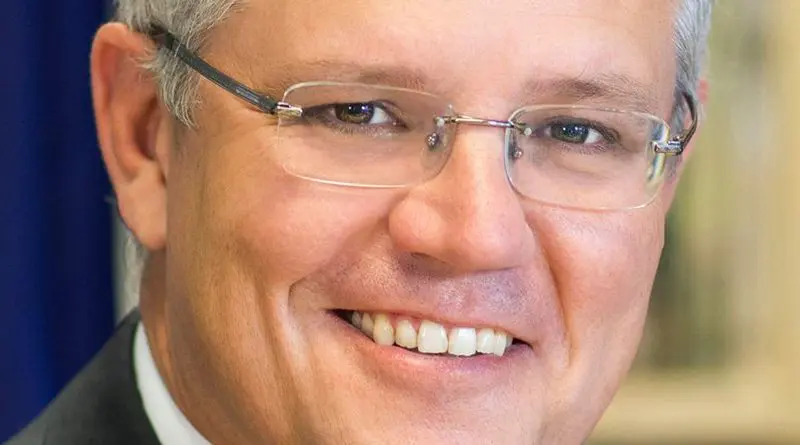Scott Morrison And Australia’s Lobby Complex – OpEd
The former Australian Prime Minister, Scott Morrison, has been somewhat of an absentee in the Federal seat of Cook. Since losing the May 2022 election, he has been aggressively chasing up contacts and deals on the consultancy circuit, bellyaching about the usual talking points: the gruesome China menace; defence matters; and, just to round it off for good measure, additional iterations of the China menace.
In March, he proved particularly jingoistic, telling Sky News Australia that Canberra needed, not only its “own capability” but “the interlocking alignments and alliances that actually provide the counterbalance to the threat.” This was code for a further renting of Australian sovereignty, a concept that has become increasingly irrelevant.
Morrison’s movement to the world of the consultant-lobbyist is a seamless one, unsurprising given his innate incapacity to understand the broader public interest. It is even questionable whether he ever left that cosmos, being very much a colluder and conniver in murky, unaccountable transactions forged in a “mates” world.
From the other side of the policy aisle, he engaged the Liberal Party lobby firm Crosby Textor in 2005 during his disastrous stint as director of Tourism Australia. Crosby Textor also gained much during Morrison’s prime ministership, having its advisors, including Yaron Finkelstein, posted to positions in the Prime Minister’s office. For Finkelstein, access to the PM was plum and exclusive.
If recent reports are are correct, Morrison is staying true to form, heading to work for a UK business with ties to the defence sector. As one source put it, “He won’t go until it is locked in but it is fair to say he is actively seeking life after politics.” That same source also revealed that the defence business was involved in “the AUKUS space”.
When asked to comment on the issue, the habitually mendacious MP for Cook claimed to be “very engaged with things in my local electorate and enjoying being back in my local community.” Such enjoyment was evidently being shared alongside his role as advisory board member for the US-based Hudson Institute’s China Centre, a position he was appointed to in December last year.
The latest revelations, if true, make it a splendid state of affairs for a figure seen as essential in – history will reveal how much in due course – in brokering the grotesquely indulgent, needless AUKUS security pact.
As the Saturday Paper rightly points out, Morrison is not “going to the other side”. He had “always been a shill for corporate interests. His approach to defence was always about his fortunes, not his country’s.” Accordingly, his relations with the defence industry, even as Prime Minister, evinced a shameless sense of planning for the future, when the gold-plated lobbyist door would be flung open.
Morrison’s behaviour is merely emblematic of the broader problem of lobbyists and their location at the heart of Australian politics. As practitioners of a craft often shrouded in secrecy, they sell their services in order to woo and convince the political classes about their merits. A minister new to the portfolio can be particularly susceptible, reaching out beyond the pool of expertise within the department. This can be a hazardous enterprise: no longer is one seeking advice delivered without fear or favour by a public servant, but by one most happy to pursue a naked agenda.
In 2021-22, the Morrison government spent $20.8 billion on consultants and outsourced services amounting to some 37% of the entire workforce. The Australian public service audit of employment found that the equivalent of nearly 54,000 full time staff were employed in that capacity.
The lobbying code of conduct, the register of lobbyists, and the ministerial code of conduct have done little to overcome these pressing problems in Canberra. Senior ministers have found it irresistible to toss a few gobbets of information towards their friends and acquaintances on how best their consultancy firms might acquire government contracts. The outgoing MP and shadow assistant treasurer, Stuart Robert, was a stellar example.
As for Morrison himself, he has a mere six months to go in satisfying the ludicrous 18-month grace period before lobbying on issues connected with his former portfolio of interests. Given that he secretly got himself appointed to numerous portfolios other than his own, the list is extensive. The time, however, is woefully inadequate, and does nothing to dispel any conflict of interest.
The ministerial code of conduct also requires former ministers to “not take personal advantage of information to which they have had access as a minister, where the information is not generally available to the public”. This is an unenforceable, and essentially dead letter. To Clancy Moore, the chief executive of Transparency International Australia, the code remains “effectively a toothless tiger”.
A few suggestions have been made to correct these maladies of the ailing democratic process. Appointment diaries of elected representatives and senior bureaucrats, as a start, can be made open to the voter. This is certainly the view of barrister and spokesman for the Australian Lawyers Alliance Greg Barns, and it is a sensible one. But short of adding fangs to any measure, the heated and busy revolving door of Australian politics and the private sector will continue to spin. Morrison can be assured of prancing out with impunity in “the AUKUS space”.

